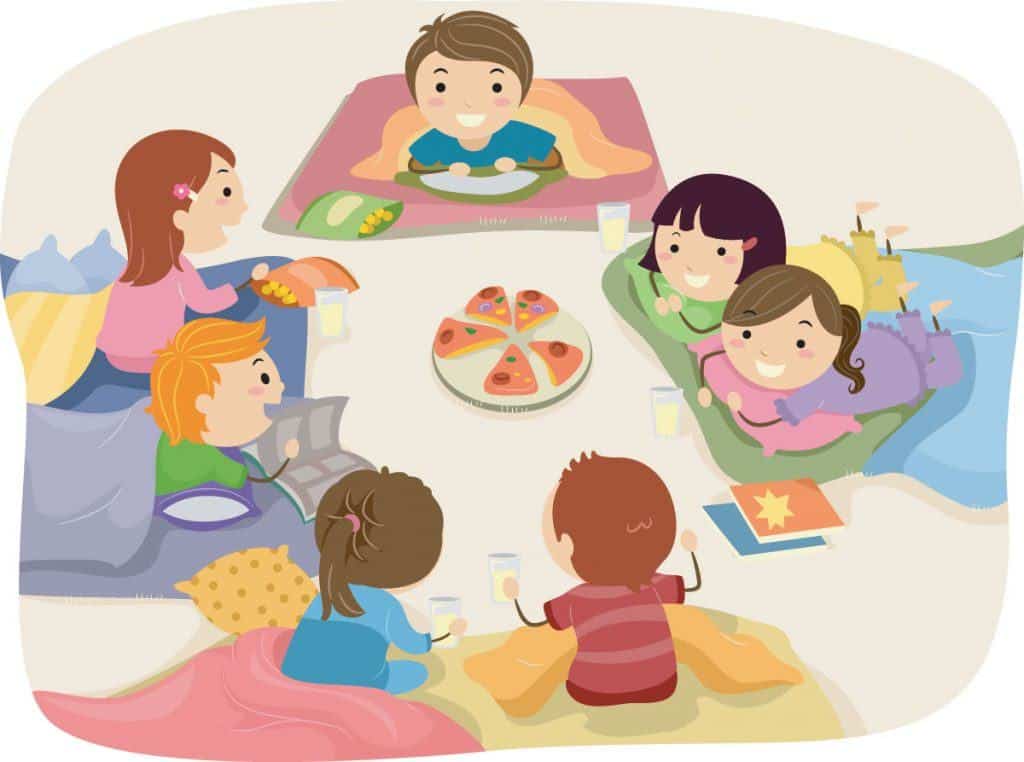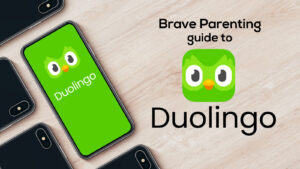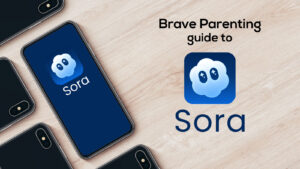The silent buzzing of my phone against my nightstand assaulted my consciousness. Terribly confused why my phone would be ringing at 4:30am, I fumbled to answer the persistent caller. The voice on the other end was a parent friend, her voice was somber and serious. “There’s been an incident at the birthday party involving your child.” I was instantly wide awake.
Before the sun rose that morning we were pacing the floor of the local emergency room. As concerns for my child dissipated with the doctor’s reports, my mind became flooded with questions I wanted to scream at the parents of the party: How could you let this happen? Where were you? Why were they alone?
In my frustration I forced myself to recognize what part of this calamity I needed to own. After all, I broke our sleepover rule. My husband and I established the “sleepover rule” long ago stating we must know the parents, their home, and their values before our child spends the night there. There is no worse feeling than breaking your own rule and watching it backfire horrendously.
My answer from the beginning for this birthday party was “no.” As I talked to others who were invited, however, every great parent I knew was letting their child attend this birthday party. My resolve grew weak, and my rule was left forgotten as no other parent expressed concern. Deep down inside I didn’t want to be the only parent making their child stay home, so I changed my “no” to a “yes” and arranged a car pool for him to go.
After our child was released from the hospital that morning, I had the opportunity to discuss the night’s collapse with other concerned parents. It turns out many of us had this “sleepover rule” in place and all fell prey to the same exact “parent peer pressure.” Well, if they are letting their child go, I’m sure it’s okay…..If so-and-so is going, their parents must know the parents of the party and think it is safe. All the while very few parents knew the actual situation our children were getting into. Some parents even had bad gut feelings after dropping off at the party but didn’t do or say anything.
Ultimately we were all a little to blame. It takes a village to raise a child, and sometimes the entire village can be led astray by good intentions. We live, we learn, we don’t make the same mistake twice.
Now, more than ever, I stress to parents the importance of having 5 CRUCIAL ANSWERS before allowing children – of any age – to sleep over at another home. My nightmare was alcohol poisoning, others are pornography exposure, sexual assault, physical abuse, drug use, bullying, and shaming.
These are TOO BIG of issues to mess around with. It’s so much more than having concerns about eating junk food and drinking soda at 2am. This is about protecting your child from TRAUMA, FUTURE ADDICTION, SHAME, or even DEATH.
5 CRUCIAL ANSWERS YOU NEED BEFORE SLEEPOVERS
1 – Will you be home the entire time?
Some parents feel it is perfectly acceptable to leave younger kids home with older siblings without ever mentioning it to you. They may even consider it reasonable to leave them completely alone for a time period. Be sure you know if the children will be leaving the home at any point and, if so, who will be driving them? Find out the exact itinerary for the evening and who will be in charge of maintaining a safe environment for your child.
2 – Who else will be in the home? Friends/Siblings/Relatives?
If you don’t know the family well enough to know how many other kids and their ages, you must find out! Ask if there will be any friends or family visiting the house that evening. Only 10% of child molestation occurs from strangers. The other 90% occurs with family or friends that are known and the child generally trusts. Before your child spends intimate sleeping hours away from your care, you must know exactly who will be with them.
3 – What type of MEDIA do you allow? Do you have cable? Do you allow R rated movies? Unrestricted internet access? Social Media?
A bloody horror movie can be just as harmful to young eyes as graphic pornography. Equally, embarrassing or humiliating pictures posted on social media during the night can damage self-esteem and self-worth for a lifetime. Depending on the age of the child, more adventurous and risky behaviors are more likely when paired with a friend. Find out what the children will have at their disposal to satiate their desire for risky and daring behavior?
4 – Where will they be sleeping?
Sleeping in the child’s bedroom may be perfectly fine, but an impromptu decision to sleep outside in a tent may expose a child to potential risks. Similarly, sleeping behind closed doors with unrestricted media can be as risky as allowing your child to play with sexual predators at the playground. Where there is little protection, a lot could happen. Additionally, older children’s desire to take risks increases if their evening is spent, for example, in the basement where the hard liquor is kept or where they can easily sneak out. The key is for you and your child to know the exact arrangements in advance and both feel comfortable with them. This way, all parties are on the same page and expectations are understood.
5 – Is there any alcohol, cigarettes, drugs, or pornography available they could get into?
This may be a hard question to ask because you risk being perceived as “judging” or “distrusting.” The alternative of not asking, however, has far greater costs to our children. It’s all too easy and common for people to put up a pretty front and act as though they have nothing to hide behind their front door. As parents we cannot judge a house or family by appearances alone and assume it is safe or unsafe. Ask honest questions even if it offends other parents. If they are assuming responsibility for your child you need to know. A mutual expectation and understanding between parents can eliminate problems in the future.
The village or tribe you are raising your children with need these questions as much as you need them. Just because we are all adults doesn’t mean we couldn’t use some accountability ourselves! Ask the brave questions because you care about them as much as you do your children.












